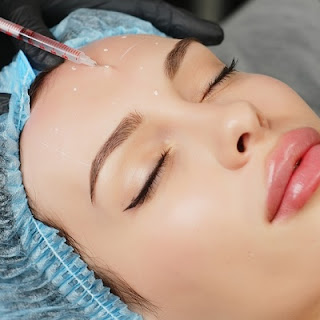How to Choose a Dermatologist: 8 Tips
A Personal Choice
A dermatologist visit can be advantageous for almost everybody. A dermatologist can assist adults and teenagers in controlling their acne, enhancing the appearance of their skin, and avoiding skin cancer. A dermatologist is someone you should carefully consider if you have a skin condition. How can you locate the greatest dermatologist who suits your needs? The following are some crucial considerations.
Get recommendations
Consult your primary care physician for a list of dermatologists to contact first. Request referrals from other healthcare professionals, your family, and friends. On Healthgrades.com, spend some time looking up the doctors' qualifications and experience. Call the offices of each dermatologist on your shortlist to see if he
Call each dermatologist's office with a short list of names to find out whether they are currently accepting new patients. Request a consultation appointment from the receptionist to meet and speak with the dermatologist. Visit website and fill the form mentioned there
https://www.skncosmetics.com/skincare-treatments/best-dermatologists/
2. Examine the credentials of the dermatologist
One of the most crucial things to look for in a dermatologist is board certification. It lets you know that the doctor has the education, practical experience, and licensure required to practise dermatology. Verify the dermatologist's past for any allegations of malpractice or disciplinary actions. On Healthgrades.com and state websites, you can obtain information about the dermatologist's medical school, training facility, certifications, history of malpractice, and disciplinary actions.
3. Take into account the dermatologist's expertise
When it comes to problems with the appearance or health of your skin, hair, or nails, experience matters. Your results are likely to be better the more expertise a dermatologist has with the ailment or procedure. Fellowship training in a subspecialty like as hair and nail problems or skin cancer surgery is very beneficial. Find out how many patients the dermatologist has treated who have your particular issue. Ask the doctor how many times they have performed the treatment you know you need and inquire about the complication rates, which include both the doctor's experience with difficulties and your own risk of complications.
4. Think about gender
You will need to discuss sensitive personal information with your dermatologist, therefore it's crucial that you feel at ease with their gender. Your own gender is a crucial factor to take into account when it comes to dermatology. Dermatologists are getting better at providing distinct care for men and women. Inquire with the dermatologist about their most recent education and experience in relation to your disease and gender.
5. Inquire About Telehealth Resources
Telehealth is the practise of using communications technology, such as two-way video, smartphones, and email, to diagnose and treat some illnesses. Ask the doctor whether telehealth services are available. Telehealth doesn't take the place of in-person, hands-on doctor visits, but it does result in fewer visits for many patients. Having a "virtual visit" with your physician while sending symptoms and vital signs you collect at home can help you manage some diseases. Telehealth is a practical choice because it may be utilised for both routine follow-ups and minor symptoms. Verify that telehealth services are covered by your health insurance.
6. Assess Communication Approach
Select a dermatologist who will support your information needs and with whom you feel comfortable communicating. Ask a question and watch the dermatologist's response when you first meet them. Does he or she encourage your inquiries and provide you with clear answers? Did you feel rushed or engaged throughout the visit? Find a dermatologist who is curious about learning about you, who will take your treatment preferences into account, and who will respect your decision-making process.
7. Study User Reviews
A doctor's style of medical practise and the management of his or her medical practise can be learned by reading what other individuals have to say about him or her. Patients' experiences with appointment scheduling, wait times, the office atmosphere, and the kindness of the staff are frequently reflected in patient reviews. You can find out how much people trust the doctor, how much time they spend with them, and how well they are able to respond to inquiries.
8. Be aware of your insurance's coverage
It makes sense to get insurance coverage. You might need to select a dermatologist who takes part in your plan if you want to get the greatest insurance benefits and pay the least out-of-pocket for your care. When choosing a dermatologist from your plan, you should still take their credentials, expertise, results, and hospital quality into account.
Visit SKN Cosmetic Clinic Islamabad For more info




Comments
Post a Comment